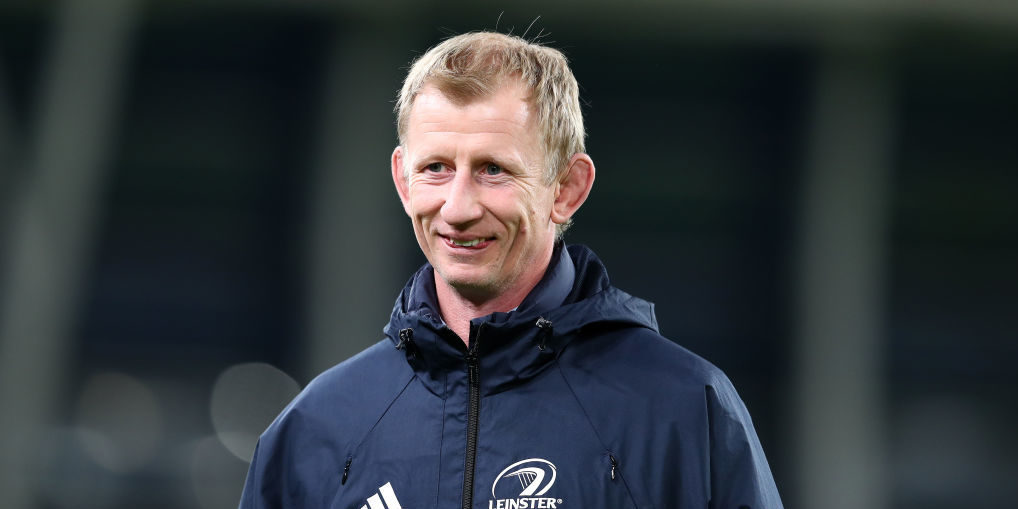Jackson column: Leinster were breaking new ground in unprecedented season

DUBLIN, IRELAND - DECEMBER 14: Leinster Head Coach Leo Cullen ahead of the Heineken Champions Cup Round 4 match between Leinster Rugby and Northampton Saints at Aviva Stadium on December 14, 2019 in Dublin, Ireland. (Photo by Michael Steele/Getty Images)
Had the season run its natural course, one team might well by now have succeeded where every other failed. Not Liverpool, Barcelona, Juventus, Real Madrid, Bayern Munich or Paris Saint-Germain but Dublin United RFC, alias Leinster.
When COVID-19 put a stop to the fun and games in early March, Ireland’s capital province were careering towards an invincible season despite spending chunks of it under the severe handicap of losing virtually a complete 1st XV to the World Cup and Six Nations.
They had won 19 out of 19 with a maximum of 13 to play, ten in the PRO14, the remainder in the Champions Cup. No professional rugby club had done anything like that over a ten-month season, not even the Christchurch-based Crusaders.
Under Messrs McCaw, Marshall, Mehrtens and MacDonald, their only unbeaten Super Rugby season in 2002 amounted to no more than 13 straight wins. En route to the English-European double last season, Saracens still lost seven of their 38 matches.
Had Leinster’s quarter-final at the Aviva gone ahead as scheduled over Easter, the smart money would have been on the No.1 seeds making home advantage count, likewise in the semi-final. They had already recorded home wins over the other six quarter-finalists.
Those ties are rescheduled for the autumn after the proposed September 12 final of a truncated PRO14 due to restart in Leinster’s case with inter-provincial fixtures against Munster and Ulster from August 22.
Instead of winning 32 matches, they will now be challenged to win no more than 26, not in front of full houses but empty stadia. The world at large may have changed during the six-month hiatus between Leinster matches but not the province’s unfailing ability to pick a match-day 23 for all seasons.
Since September they have used 53 players, the equivalent of three complete teams. The main one tends to be reserved for the Champions Cup, a different one entirely for the run-of-the-mill fixtures in the PRO14, a competition in which Johnny Sexton has not appeared all season.
Their tries, delivered at an average of more than five per game, have been distributed among no fewer than 38 players all over the field. Props have scored 13 (Andrew Porter 4), hookers ten (Ronan Kelleher 9), locks 4 (Ryan Baird 3), back row 21 (Max Deegan 7), scrum-halves 5 (Luke McGrath 2), fly- halves 6 (Ross Byrne, Harry Byrne 2 each), centres 14 (Garry Ringrose 8), wings 26 (Dave Kearney 12), full-backs 1 (Rob Kearney).
How strange to relate that they came closest to a cropper not in Limerick or Lyon but in Italy against the PRO14’s serial losers. Zebre kept their line intact on a wet day last October when Ross Byrne’s solitary penalty made all the difference and while Leinster were depleted by the World Cup, so, too, were Zebre.
Leinster’s Irish international contingent extends to 27. While Fergus McFadden’s retirement reduces it by one, Leinster used the season before lockdown to blood the next generation, a new batch of academy players including Ryan Baird.
Second row forwards are not meant to deal in tries, let alone hat-tricks but the 20-year-old Dubliner scored one in only his second start of the season, against Glasgow at the end of February. Spectacular notice had been served of yet another graduate from the prolific nursery of St Michael’s College.
If Dublin United haven’t already removed all doubt about having the world’s best non-Test squad, it can be but a matter of time before they do.